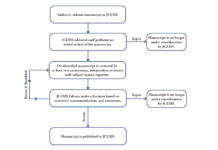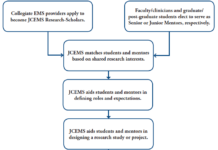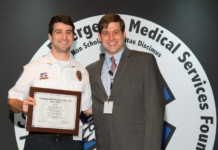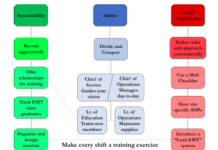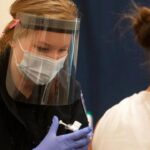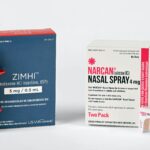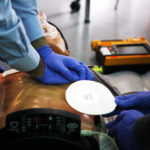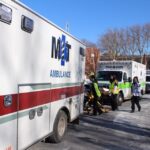Peer Review of Collegiate EMS Scholarly Literature
JCEMS employs a double-blind peer review process to filter manuscripts for publication. We believe that the process minimizes bias, promotes fairness, encourages appropriate criticism, and strengthens the quality of submitted manuscripts.
Non-Veterinary Emergency Care of Law Enforcement Canines at Mass Gathering Events
This case report describes the development, implementation, and evaluation of a pilot training course for collegiate EMS providers on the treatment of law enforcement canines.
The JCEMS Research Mentorship Program
JCEMS developed a Research Mentorship Program to build research capacity in the collegiate EMS community.
Interview with Oren Cohn
JCEMS Executive Editor Brittany J. Dingler offers an exclusive interview with the 2018 Collegiate EMS Provider of the Year.
Expanding Collegiate EMS Agencies
Expanding EMS agencies face many challenges pertaining to on-scene operations, administrative oversight, and sustainability. Yale EMS (YEMS) faced a $5000 budget deficit, inconsistent training of probationary members, and a high incidence of equipment deficiencies, delayed response times, and unsafe scene conditions. YEMS addressed these concerns using a three-pronged approach tackling Operations, Administration, and Sustainability challenges.
You Can Learn a Lot from a Pair of Sneakers
To be treated like professionals, collegiate EMS providers need to display professionalism in their attitude and appearance.
Fundraising for Your Collegiate EMS Agency
Following five strategies, Skidmore College EMS tripled their fundraising goal. Consider adopting these strategies to maximize returns on your next campaign.
Research and Scholarship in Collegiate Emergency Medical Services
JCEMS and NCEMSF are spearheading the drive to promote research and scholarship in the field of campus-based prehospital emergency care.

